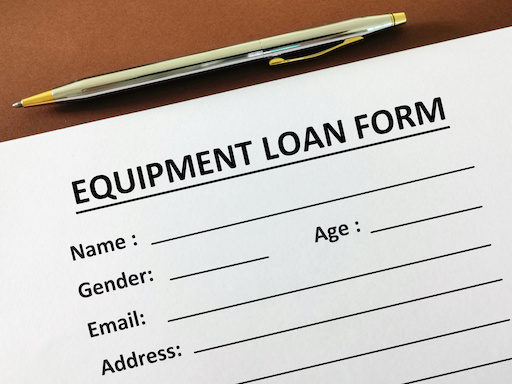Green is the New Black: Why the GGRF Matters to Your Small Business
What if you could significantly reduce your operating costs? Then imagine if you could attract a new wave of environmentally

Applying for business equipment financing or a small business loan, whether it's through direct purchase (EFA) or equipment leasing, you want to ensure a seamless, efficient, and stress-free application process. The following pointers can help you understand the process from the perspective of equipment finance companies and lenders, facilitating quicker access to necessary capital by aiding in efficient underwriting.

Every application should include:
The criteria for credit decisions encompass:
BUSINESS VERIFICATION & BANK REQUIREMENTS

Though not all lenders require bank statements at submission, the applicant must have a verifiable commercial checking account and address under the business name at funding. If the applicant lacks a business telephone and/or a commercial bank account, they wouldn't be considered “in business”. This is a key fraud prevention measure.
Business verification requirements may be waived when it's customary and reasonable for the applicant not to have a business telephone. Examples could be subcontracting or transportation businesses. In such instances, other supporting documentation may be requested, such as sales tax license, business license, business name filing, landlord lease agreement, utility bill, or associated federal income tax schedules.
Many lenders have a no-doc program similar to “Application-Only”. However, for further consideration, a detailed financial package may be requested. This is often the case for split transactions or for applicants that have existing exposure with other funding sources.
The package might include IRS Tax Returns and Personal Financial Statement (PFS). A PFS is required on all guarantors, and it must be complete, accurate, and less than 60 days old with detailed supporting schedules, dated and signed by guarantor(s).
The credit strength of an applicant can often be enhanced with a spousal, parental, or blood relative guaranty. Many equipment loan and small business loan companies evaluate this potential additional guarantor on a case-by-case basis. In general, a co-signer is required when a business owner/operator has a limited credit profile or aged derogatory credit.
Discharged bankruptcy over two years may be considered when any guarantor has a firmly re-established credit history demonstrating depth and timeliness of payments. For applicants with less than 2 years since the bankruptcy, pricing may be considered for ‘C’ Rates.
American Credit®, Inc website: amcredit.com

Sign up for the newsletter and get our latest stories delivered straight to your inbox.